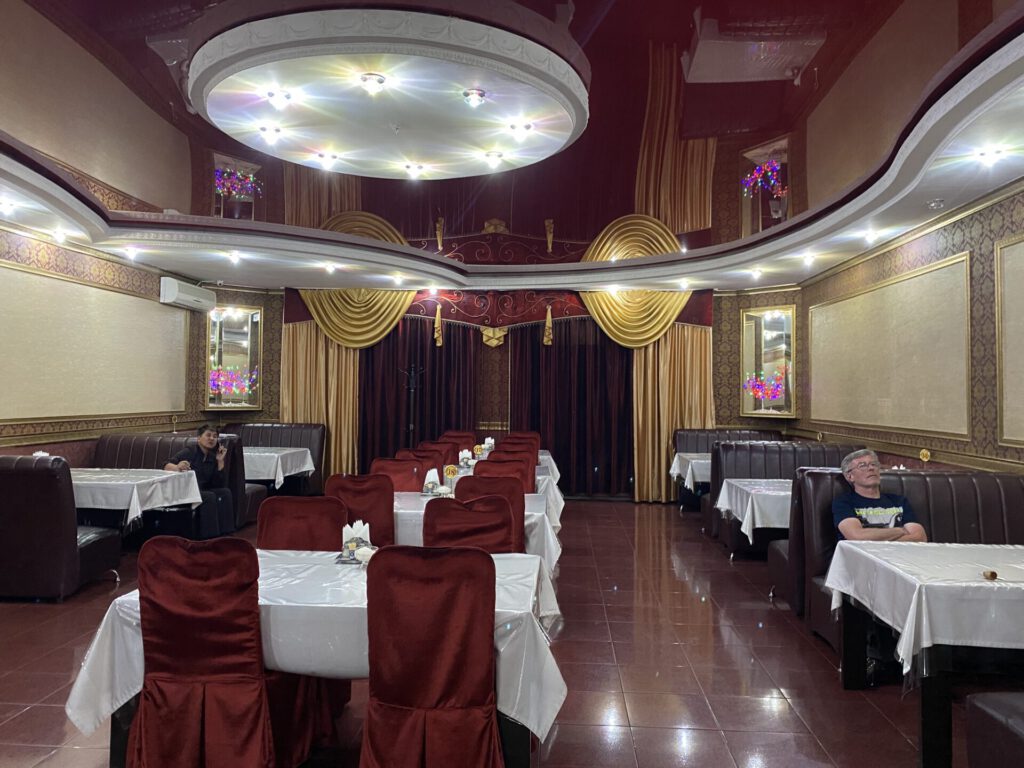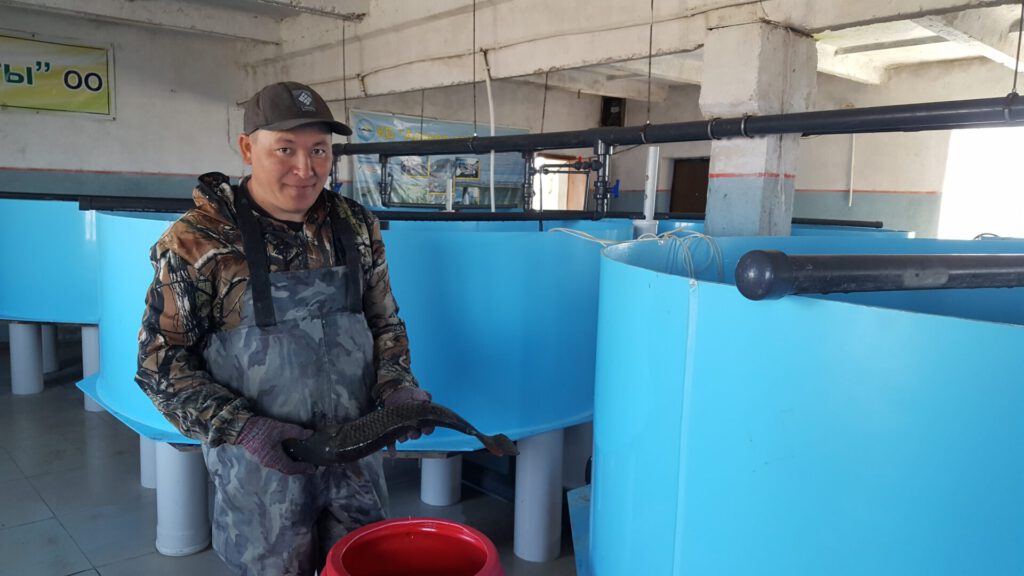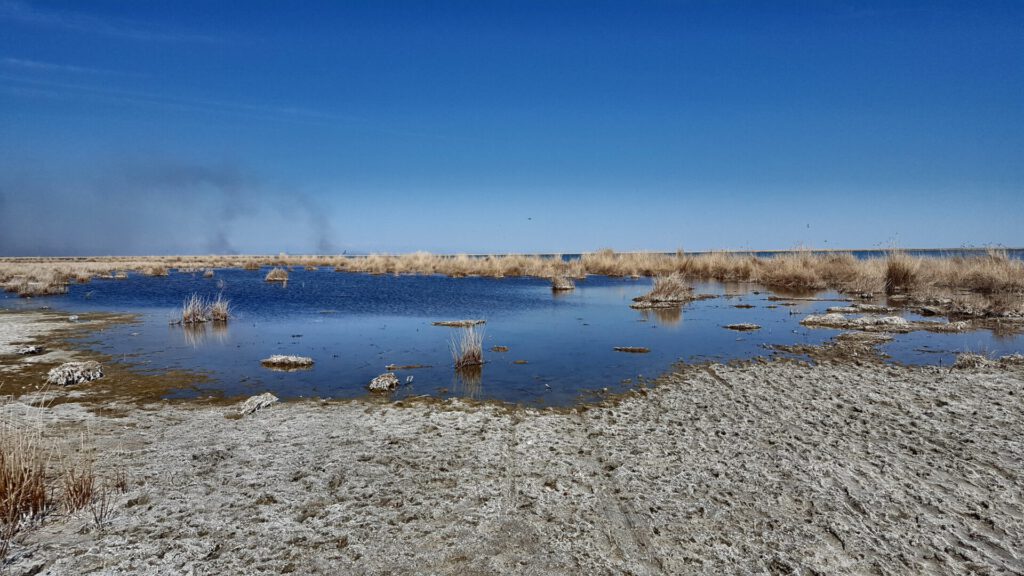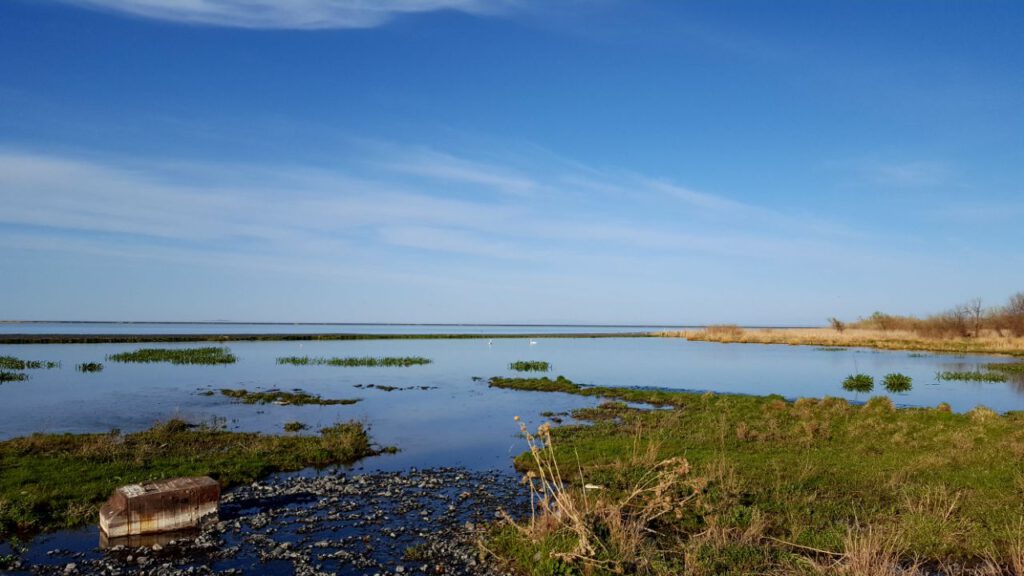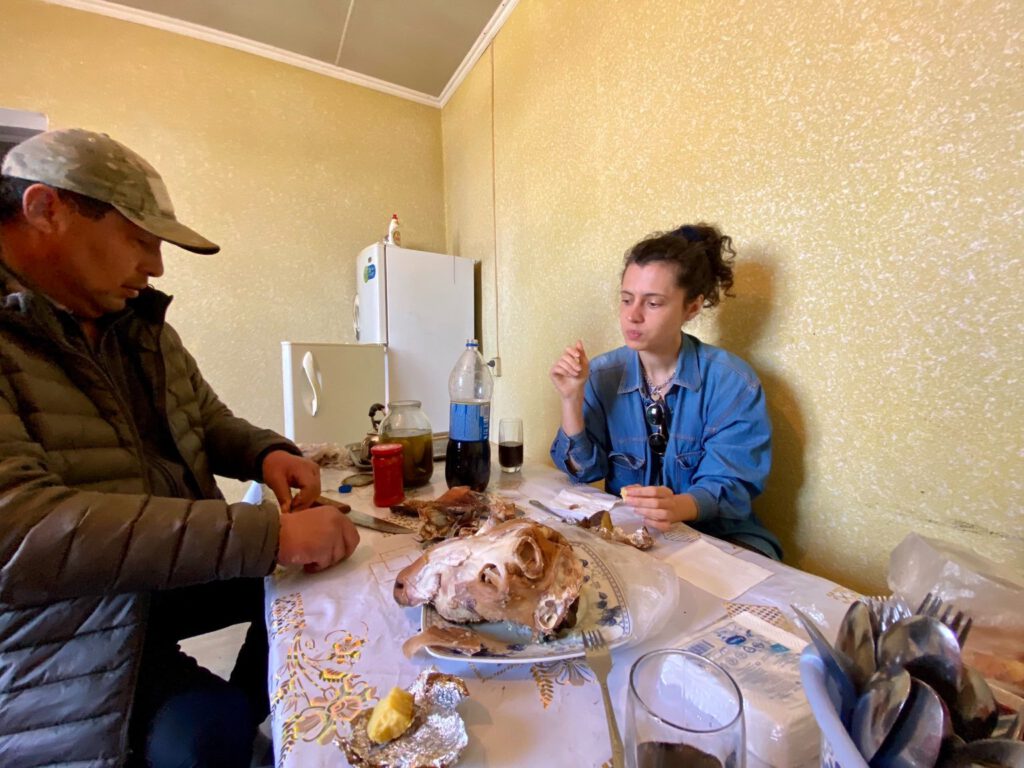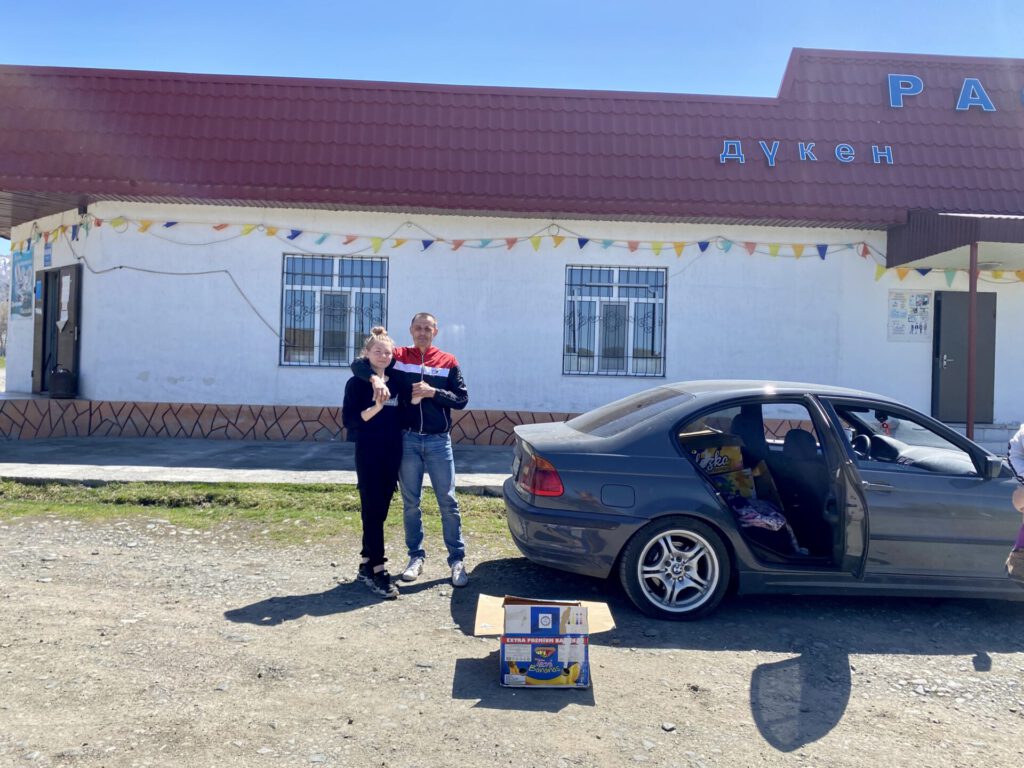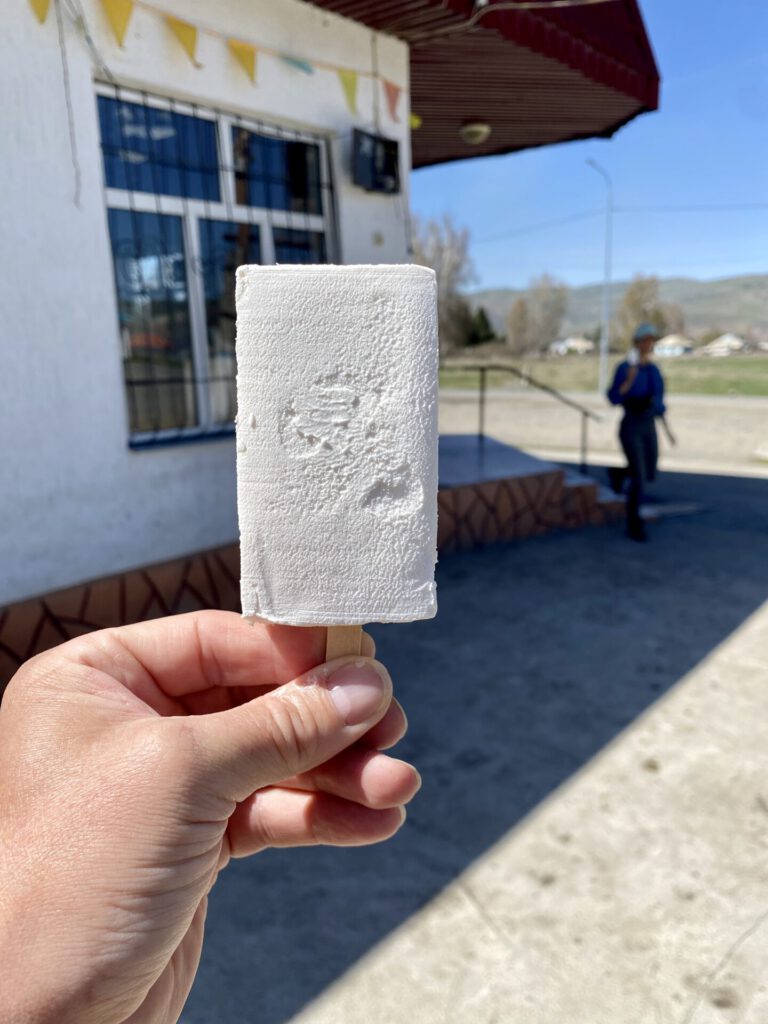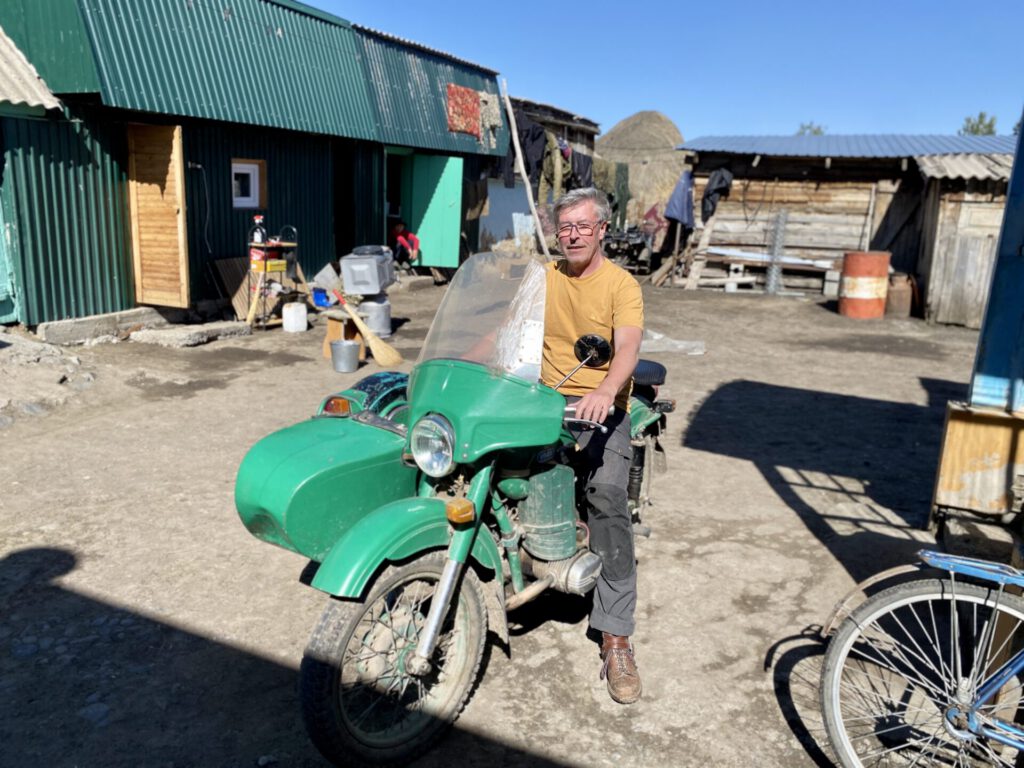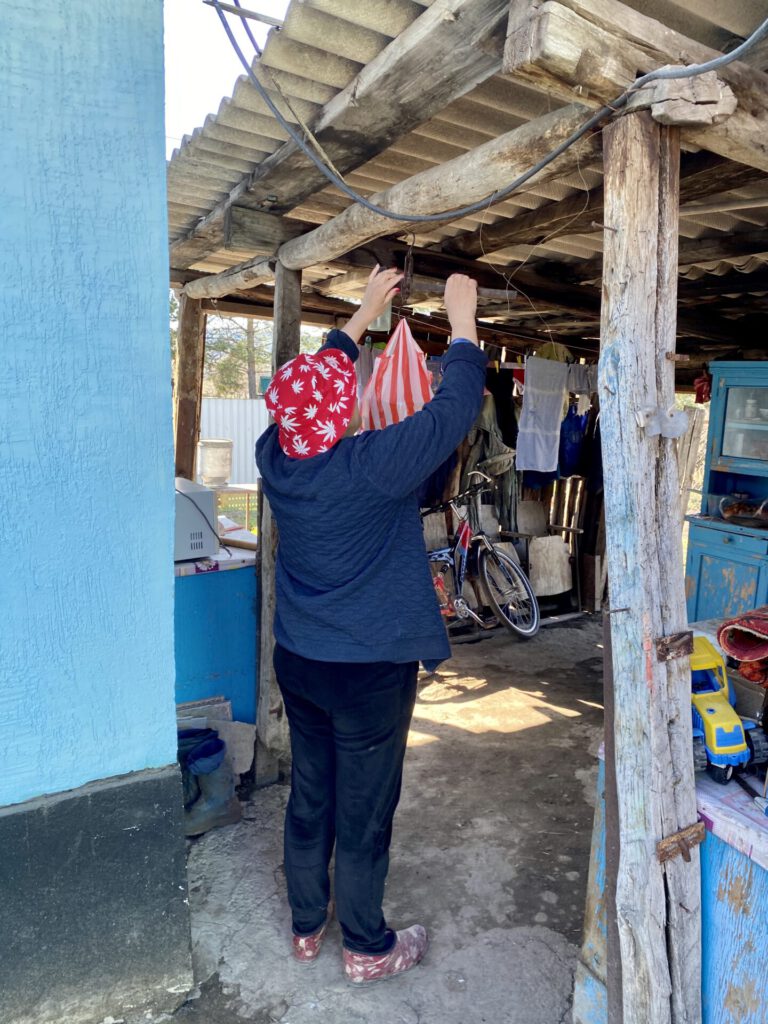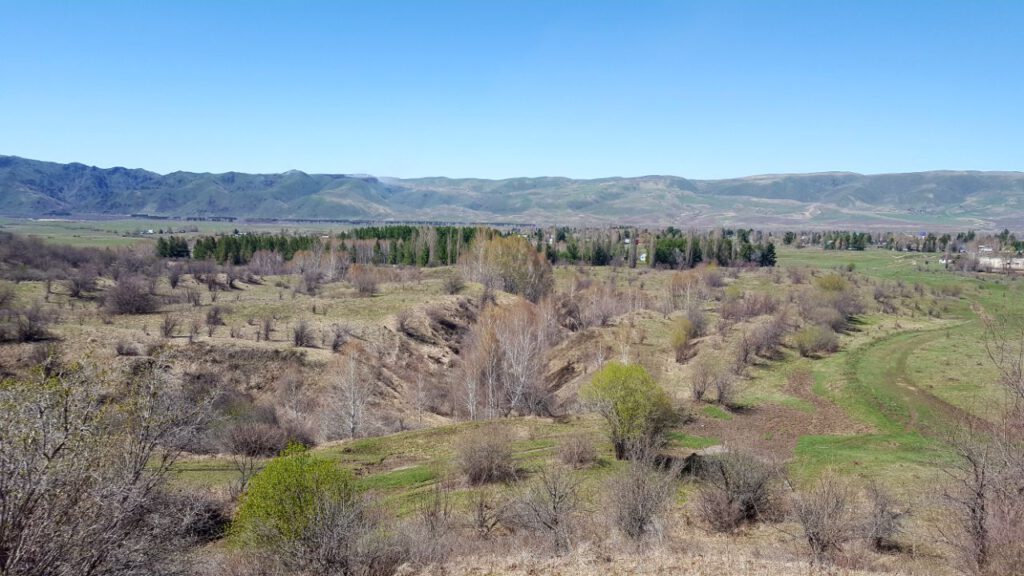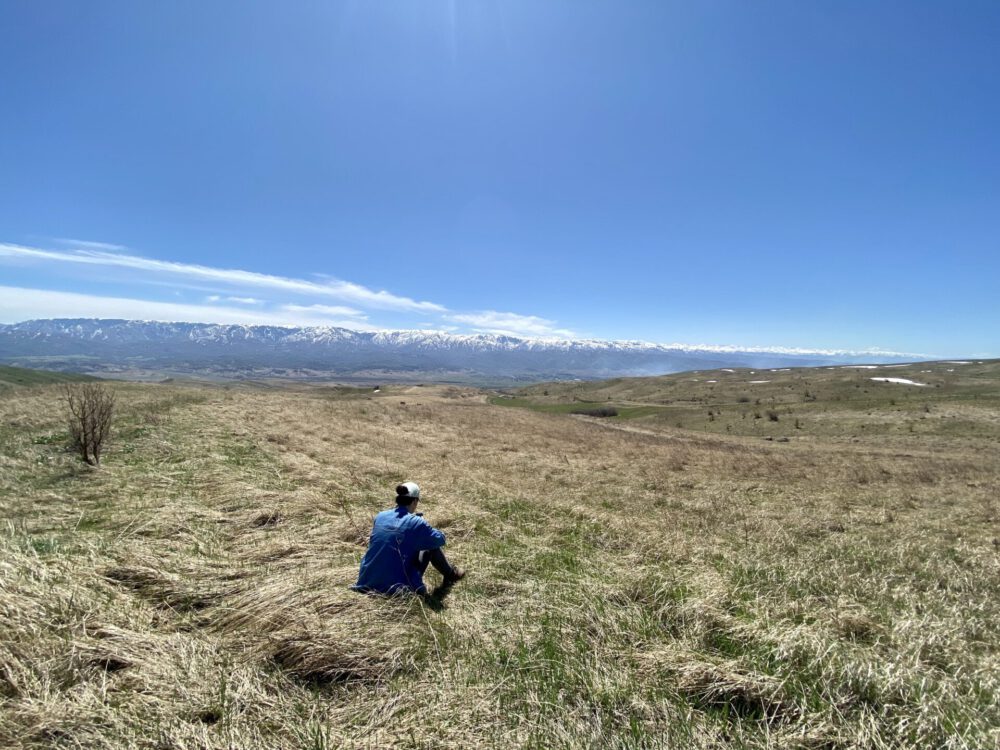The small town of Usharal lies near the lake. We stayed here for a few days to explore the area as Brehm once did. The large Lake Alakol is connected by a marshland with Lakes Kosharkol and Sasykkol to the northwest. We met Erzahn in a small fishing village on Lake Kosharkol. But everyone calls him Jack. “Like Jack London. My brother gave me that nickname when I was a child,” he said. Ten years ago, with the help of European funding, Jack set up a small fish farm in the hamlet. Politicians, scientists, businessmen from Russia and Europe have already been here, he told us. The small station serves to preserve the biodiversity of Lake Alakol. There are around twenty species of fish in the lake, with carp being the most common. “We have raised everything here ourselves and help both the people and nature,” Jack emphasised as he led us through the small hall with several fish tanks. The people in the small villages around the lake lived from fishing alone.
Afterwards we were invited to the workers’ house for tea. “What can I offer you?” said Jack as he glanced in the fridge. With a joyful “Ha!” he pulled out a plate on which was a sheep’s head. According to nomadic tradition, the sheep’s or lamb’s head is served to the guest of honour. We wouldn’t have thought that we were allowed this unexpected honour in a fishing village, of all places. Over tea, Jack told us that he does not want to leave it at fish reproduction alone. He is planning a processing plant where all kinds of fish products from fillets to burger patties will be produced and exported from here to other countries. “I need some capital and a business partner to work with. Preferably a German.” Interested readers are welcome to contact us and we will put you in touch.
Walking along the lake, one listens to a concert of frogs croaking and a variety of birdsong. It is not without reason that the lake with its two islands is internationally recognised as an important bird area under protection. Birdwatchers can spot up to ninety species of birds around the lake during the breeding season in spring, especially central asian gulls, whooper swans, white-tailed eagles and juvenile cranes. However, Volker’s and my ornithological knowledge was only sufficient to identify a pair of swans.
The following day we set off for Lepsy. In his notes, Brehm raved about this village and the landscape. It was almost paradisiacal. It was no different for us. Even though winter has stubbornly held on here, the bright green meadows with some blooming wildflowers are already unfolding their magic. There was a relaxed atmosphere in the village, people were engaged in different activities. A woman was washing a large carpet with the children in front of the house. A few houses away, a man was chopping wood behind his house. Kazakh pop music sounded from a courtyard. Sometimes a cow mooed. Young women pushed prams through the streets and little children built constructions out of bottles, while the older ones sat in the shade looking at their smartphones. That’s the way to live.
Brehm was particularly taken with the excursion to Zhasylkol Lake, which is hidden near the village in the Dzungarian Alatau ridge. Emerald-coloured water, framed by the Alatau Mountains – a true jewel of nature. Maybe this time it will work out with the mountain lake, we thought. Before we left the village, however, we stopped at a beekeeper’s house. Lepsy has always been known for its excellent honey. “Taste it”, Asya said, holding out a teaspoon of the pale yellow honey to us. Mmmhhmmm…Bought!
The path to the lake led along lush meadows that stretched like velvet over the hills. In addition, there was a river on whose surface the sun’s rays sparkled like countless diamonds. We would not have been surprised if fairies and elves had also been cavorting on the grass.
Why there were two Germans in the mountains at this time of year, however, surprised the warden of the protected area. We stopped at his hut and asked how we could get to the lake. On foot or on horseback, was his simple answer. You wouldn’t get close by car anyway. Besides, the road was blocked by the meltwater. “You’ll have to come back in June,” he told us. We have found this out several times in the last few weeks: Kazakhstan is worth more than one trip.
